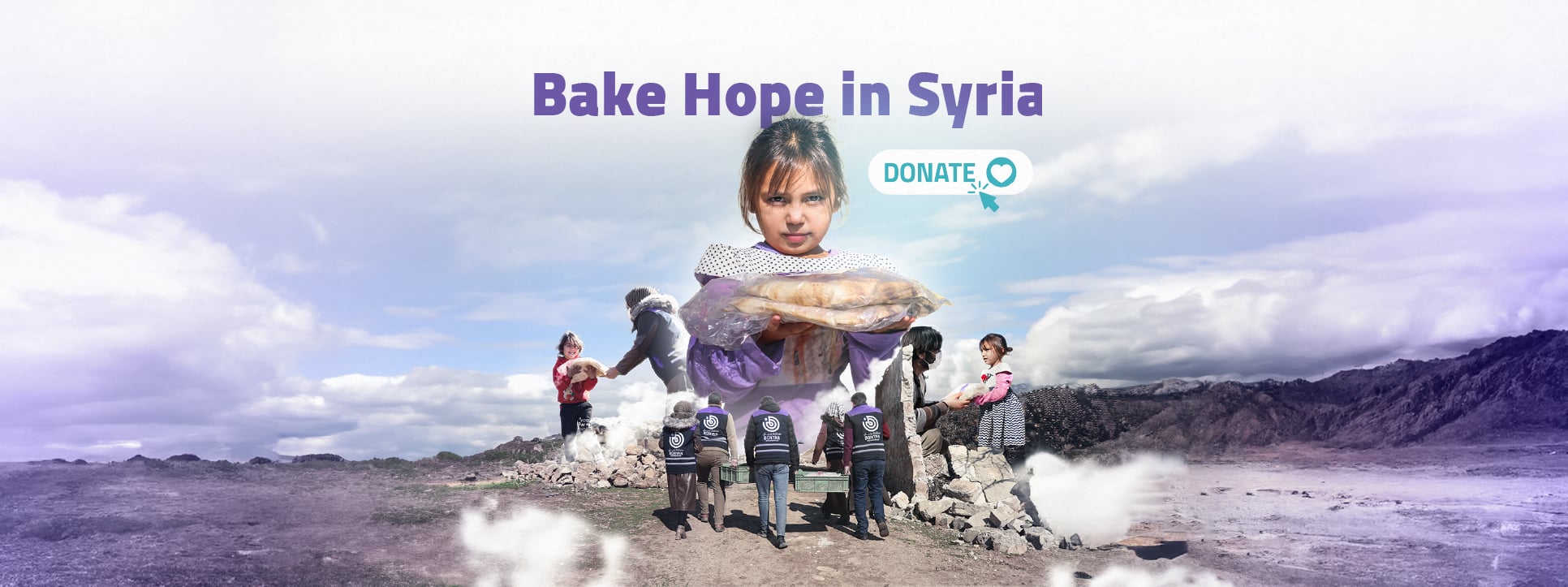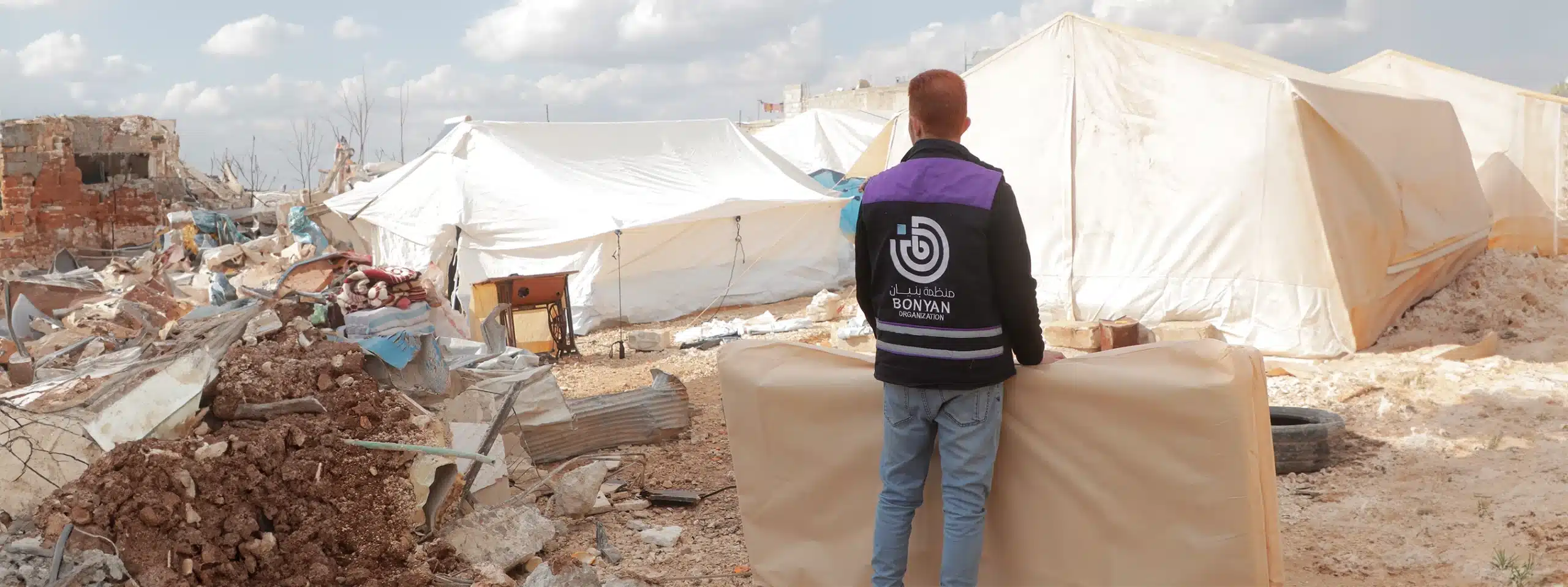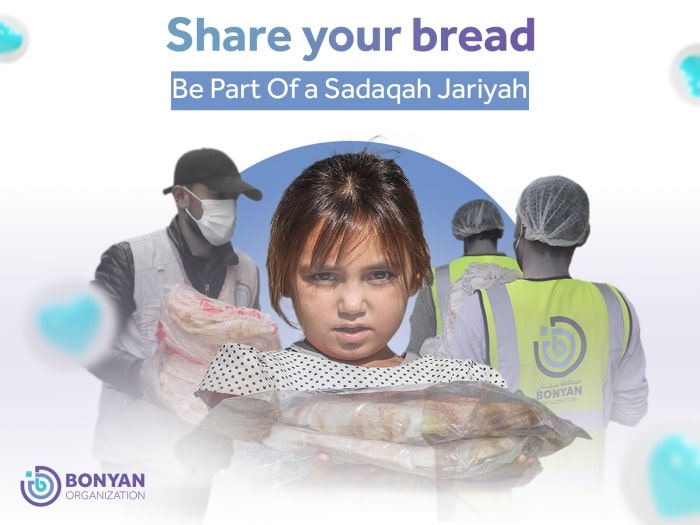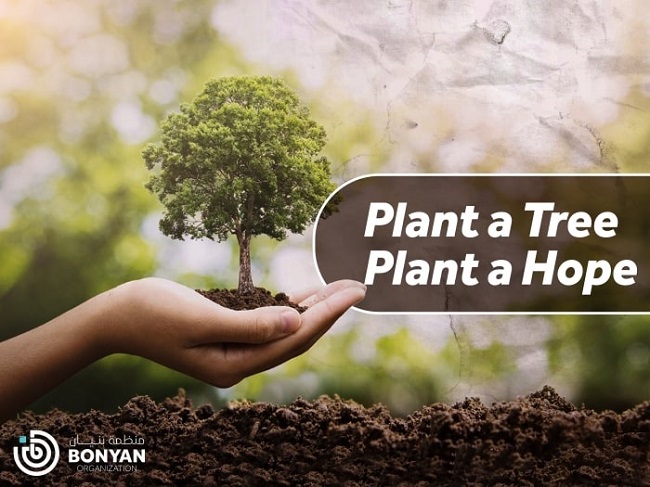Sadaqah is one of the best acts of charity that is greatly encouraged by Islam as it helps spread mercy and kindness among Muslims in the community.
It is mostly encouraged during the month of Ramadan as its rewards are multiplied many times. In this article, we discuss the virtues of sadaqah, especially during Ramadan, which is the month of blessings.
What is Sadaqah?
Sadaqah refers to voluntary acts of charity or almsgiving. The word “sadaqah” itself means “righteousness” in Arabic. This form of charity is given voluntarily, driven by love, compassion, faith, or a desire to please God.
Sadaqah is considered a form of worship done purely for the sake of Allah and is not mandatory, distinguishing it from obligatory almsgiving like Zakat.
There are multiple means of sadaqah, which are not merely restricted to financial terms. These include other acts of kindness, such as:
- Smiling to people’s faces.
- Saying kind words to uplift others’ spirits.
- Removing harm from people’s paths.
Sadaqah in Ramadan
Sadaqah holds special significance during the holy month of Ramadan in Islam. The act of giving sadaqah is considered a righteous deed, reflecting the spirit of compassion and communal solidarity during this sacred month.
Ramadan is a time of increased devotion, self-reflection, and empathy. Sadaqah extends beyond financial contributions and can include non-financial acts such as a smile, a kind word, or removing harm from someone’s way.
Believers are encouraged to engage in various forms of charitable acts, promoting a sense of community and shared responsibility.
Is Sadaqah during Ramadan better than at other times?
Yes, giving Sadaqah during Ramadan is considered especially virtuous and carries greater rewards than at other times in Islam. The significance of Sadaqah during Ramadan is emphasized in Islamic teachings, and several Hadiths highlight its elevated status during this holy month.
The Prophet Muhammad (peace be upon him) mentioned that the best charity is that given in Ramadan, indicating the increased value and multiplied rewards of charitable acts during this time.
Anas narrated that: the Prophet (Peace Be Upon Him) was asked which fast was most virtuous after Ramadan? He (Peace Be Upon Him) said: “Sha’ban in honor of Ramadan,” He said: “Which charity is best?” He (Peace Be Upon Him) said: “Charity in Ramadan.”
Jami` at-Tirmidhi 663
The rewards for righteous deeds, including Sadaqah, are believed to be greatly multiplied during Ramadan due to the elevated spiritual atmosphere and the heightened importance of acts of worship in this month.
Acts of kindness, generosity, and charity are encouraged as Muslims seek to maximize their good deeds and seek Allah’s blessings and forgiveness during this sacred time.
Best Types of Sadaqah in Ramadan
During the sacred month of Ramadan, various forms of Sadaqah (voluntary charity) hold profound significance, aligning with the spirit of generosity and compassion inherent in Islamic teachings. These types of Sadaqah are not only acts of kindness but also avenues for accruing spiritual rewards.
Iftar Invitations
Hosting or extending invitations to iftar (breaking of the fast) is a beautiful form of Sadaqah. Sharing a meal with others fosters a sense of community and exemplifies the spirit of generosity during this blessed month.
Above all, offering iftar to poor people and those in need is greatly rewarded by Allah (SWT).
Allah SWT said, “Or feeding, on a day of severe hunger, an orphan of near relationship, or a needy person in misery. And then being among those who believed and advised one another to patience and advised one another to compassion. Those are the companions of the right.”
(Qur’an 90:14-18)
Prophet Muhammad (PBUH) said that if a person cannot fast, they can earn the same reward by feeding a fasting person. “Whoever feeds the person who is breaking his fast, he will have his reward (for his fasting) without decreasing anything from the reward of the fasting person,”
[Al-Tirmidhi, Ibn Maajah]
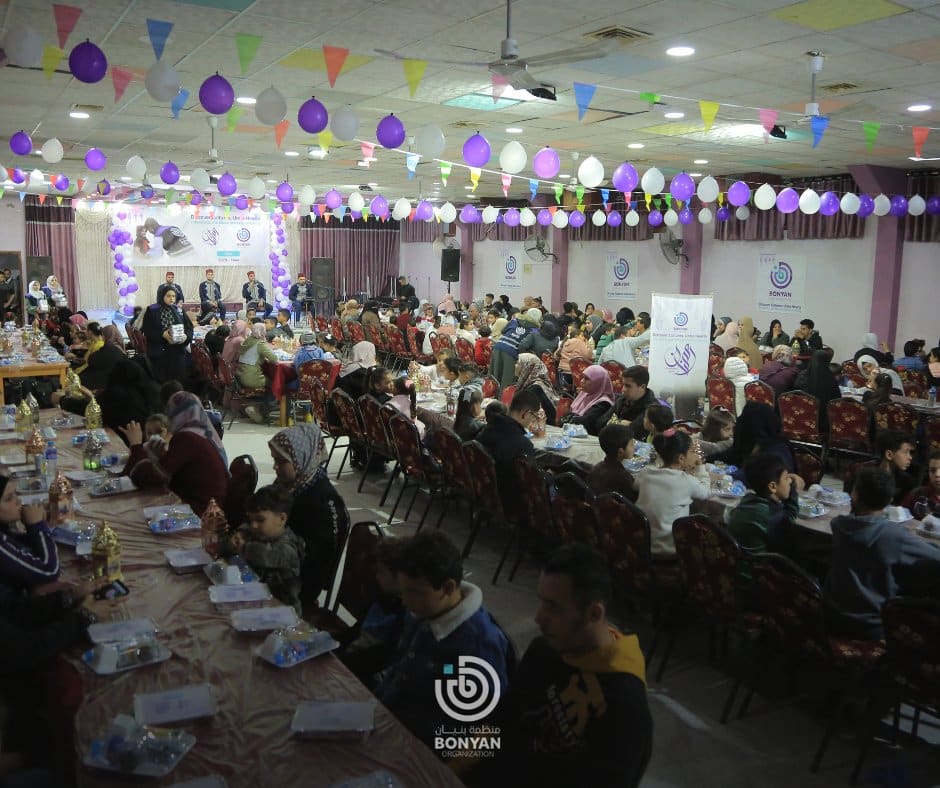
Charity Work
Actively participating in charity work, such as volunteering at local organizations, shelters, or community events, is a hands-on form of Sadaqah. Contributing time and effort to help those in need aligns with the essence of Ramadan.
Food Baskets
Assembling and distributing food baskets to those facing economic challenges is a practical way to provide sustenance. This tangible form of Sadaqah ensures that individuals and families have access to essential provisions during Ramadan.
Abdullah bin Amr (RA) reported, “A man asked the Prophet (PBUH), ‘What Islamic traits are the best?’ The Prophet (PBUH) said, ‘Feed the people, and greet those whom you know and those whom you do not know,”
[Bukhari]
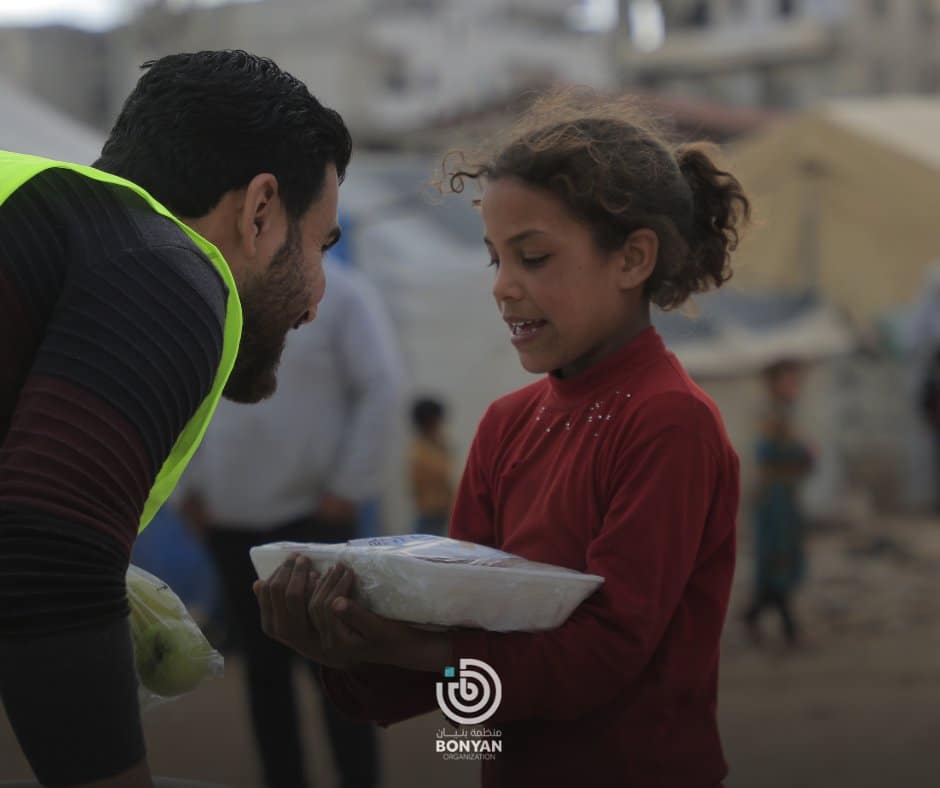
Forgiving Others
Ramadan emphasizes spiritual purification and forgiveness. Letting go of grudges, forgiving others, and fostering harmony within relationships are acts of Sadaqah for the soul, contributing to a peaceful and compassionate community.
Financial Contributions
Continuing to give financial Sadaqah, including supporting ongoing projects or contributing to specific causes, remains a fundamental aspect of charity during Ramadan.
Benefits of Sadaqah in Ramadan
Sadaqah holds numerous benefits during the holy month of Ramadan:
1. Spiritual Purification: Sadaqah is a means of purifying the soul and seeking forgiveness for sins. It allows individuals to engage in acts of kindness, promoting spiritual growth and self-reflection.
2. Barakah (Blessings): Giving Sadaqah brings blessings to the giver’s life. It is believed to enhance one’s well-being, prosperity, and overall life satisfaction. Sadaqah is seen as a source of barakah that extends beyond material wealth.
3. Protection from Calamities: Sadaqah is considered a protective barrier between the giver and destined calamities. It is believed to shield individuals from hardships, both in times of ease and difficulty.
4. Closer to Allah: Giving Sadaqah during Ramadan is an act of worship that draws individuals closer to Allah. It is an opportunity to demonstrate gratitude and devotion, fostering a deeper connection with the divine.
5. Community Solidarity: Sadaqah in Ramadan fosters a sense of solidarity and generosity within the community. It strengthens bonds, promotes understanding, and builds mutual support among individuals.
6. Achieving Taqwa: By giving Sadaqah, individuals can achieve taqwa, a heightened consciousness of Allah. It is believed that true piety is attained through acts of charity, contributing to a noble and righteous character.
How To Give Sadaqah In Ramadan?
During Ramadan, there are various special ways to give Sadaqah, contributing to charitable causes and supporting those in need:
Direct Donations
You can make direct donations to reputable charities or organizations that work on humanitarian projects. This can be done through their websites or designated platforms, allowing you to contribute financially to various causes.
Charity Events
Participate in charity events organized by local communities or global organizations during Ramadan. These events may include fundraising drives, virtual campaigns, or community initiatives aimed at helping the less fortunate.
Sponsorship Programs
Consider sponsoring individuals or families in need through ongoing sponsorship programs offered by charitable organizations. This ensures sustained support for those facing economic hardships.
Sadaqah Boxes
Many mosques and community centers place Sadaqah boxes where individuals can contribute cash or other forms of donations. These boxes are often strategically placed in easily accessible locations during Ramadan.
Online Platforms
Utilize online platforms and mobile apps provided by reputable charities to make quick and secure Sadaqah contributions. These platforms often offer a range of causes and projects to support.
Remember that the intention behind giving Sadaqah is crucial. Acts of kindness, support, and generosity during Ramadan hold special significance, and even small contributions can make a meaningful impact.
Give Your Sadaqah In Ramadan Through Bonyan
This Ramadan, seize the opportunity to make a lasting impact by directing your Sadaqah through Bonyan Organization. Your act of giving during this sacred month holds the power to transform lives in war-torn regions, including Syria, Palestine, and Yemen.
Bonyan is dedicated to channeling your Sadaqah towards essential initiatives that resonate with the spirit of Ramadan. Your contribution can support the distribution of food, clean water, and Ramadan baskets to families facing adversity. By choosing to give through Bonyan, you become an integral part of efforts to bring relief, nourishment, and joy to communities affected by conflict.
Donate your Sadaqah to Bonyan this Ramadan and be a beacon of light in the lives of those enduring hardship. Together, let us make a meaningful difference and uplift the spirits of communities in crisis.




